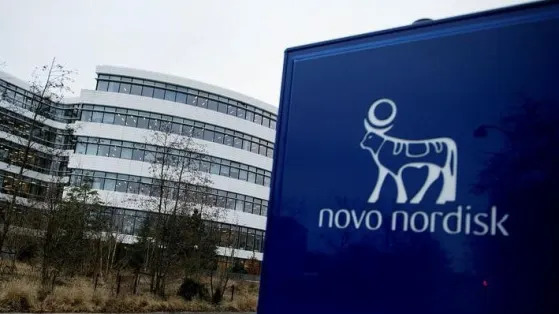Novo Nordisk's stock suffered its biggest one-day slide on record after its latest obesity drug trial disappointed investors hoping for another blockbuster weight-loss drug.
The Ozempic-maker's stock plunged 21% to trade at $82.03 per share shortly after the opening bell on Friday morning, hitting its lowest level in over a year.
The losses come after the Danish drugmaker published a highly-anticipated study on its experimental obesity drug CagriSema.
The results showed that the drug helped participants lose an average of 22.7% of their weight after taking it for over a year, below the drugmaker's expectations for 25% weight loss.
The two-drug treatment combines semaglutide, the appetite-suppressing active ingredient in the company's blockbuster weight loss drugs Ozempic and Wegovy, with cagrilintide, an experimental drug that targets a gut hormone called amylin to make people feel full while eating.
The company had hoped combining the two could help patients lose even more weight than the already popular Ozempic and Wegovy drugs.
Investors and analysts eagerly awaited the data as a gauge of Novo Nordisk's position in the competitive market for weight-loss drugs.
Analysts say the results show CagriSema isn't likely to surpass Eli Lilly's Zepbound, a drug that led to a similar average weight loss of almost 23% in clinical trials but that's easier to manufacture.
Eli Lilly's stock rose on the news, up more than 5% in early Friday trades.
"We expect LLY shares to be strong today," Citi analyst Geoff Meacham wrote in a Friday note, adding, "This is nearly a best-case scenario for Lilly's tirzepatide (20.9% weight loss) given Novo's and the Street's expectations for a target that could have eroded Lilly's market share in higher BMI patients."
Meacham said the Eli Lilly's tirzepatide—sold under the names Zepbound for weight loss and Mounjaro for diabetes—has significant upside given its small discontinuation rate and strong efficacy, which should allow it to sustain and grow market share. The analysts have a price target of $1250 on the stock, implying 55% upside from current levels.
Read the original article on Business Insider


